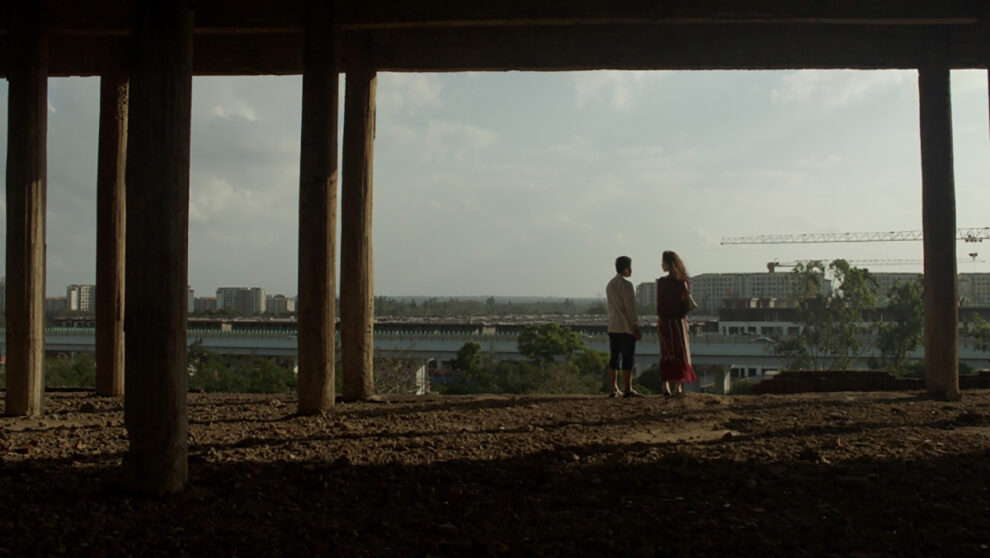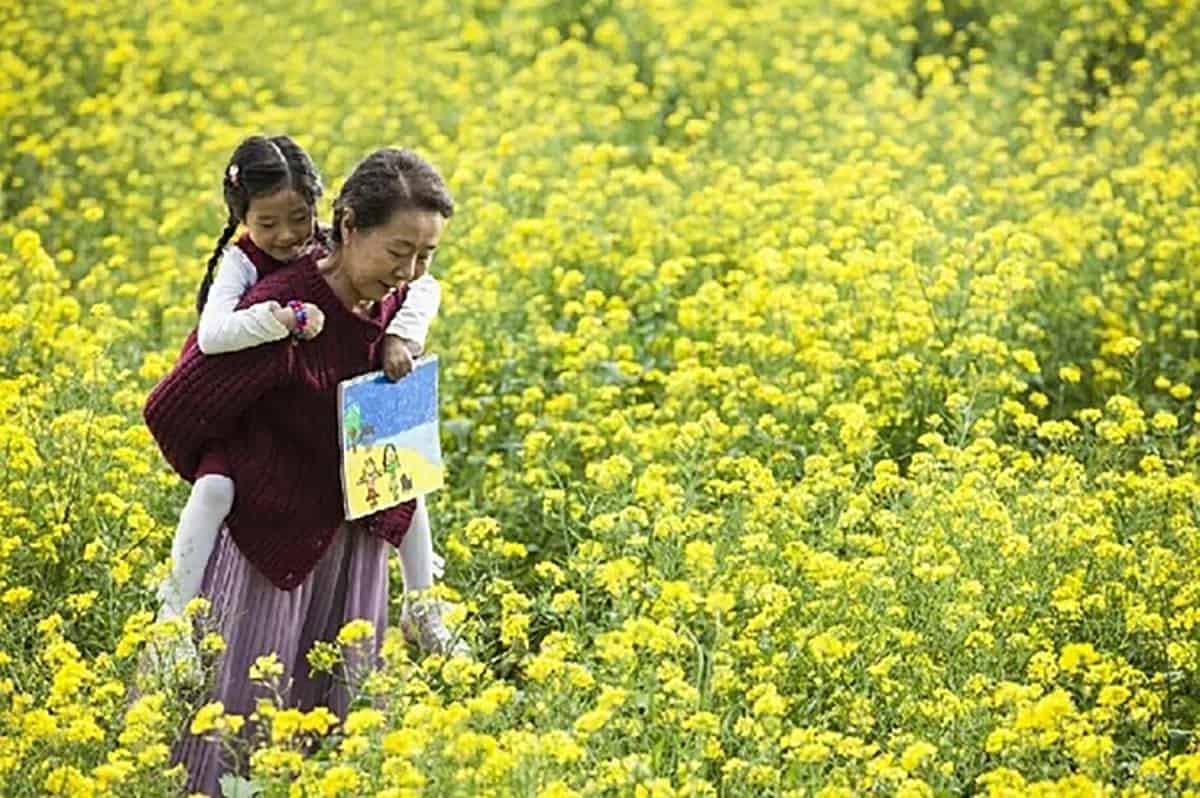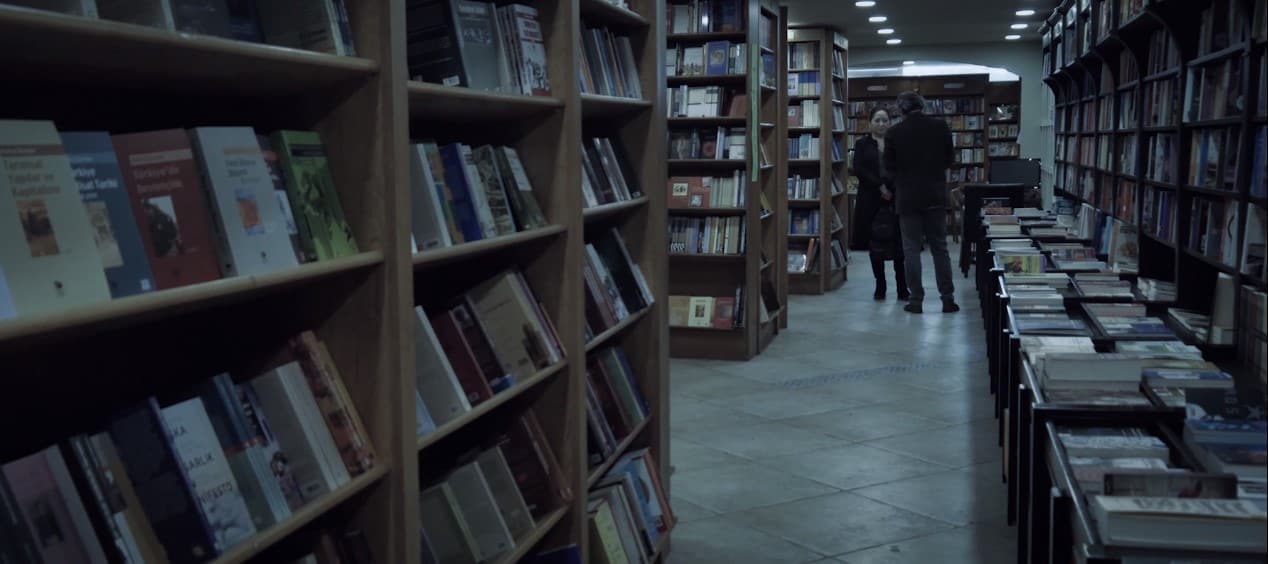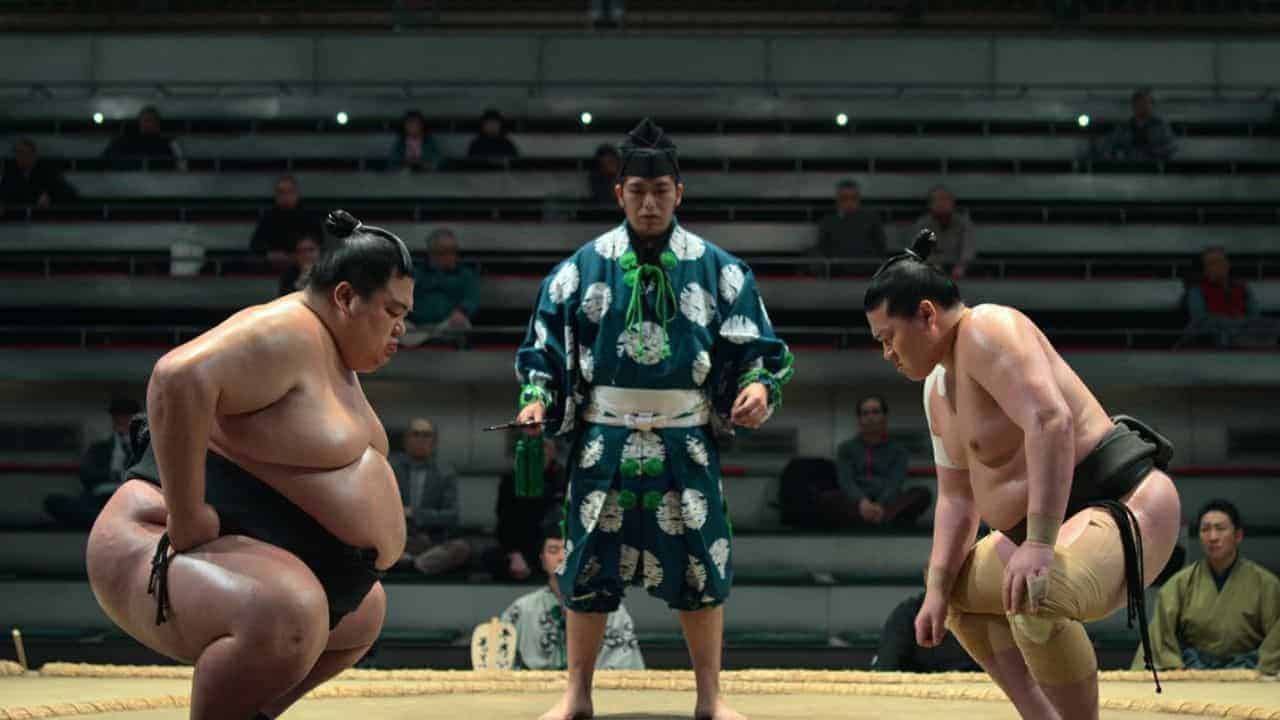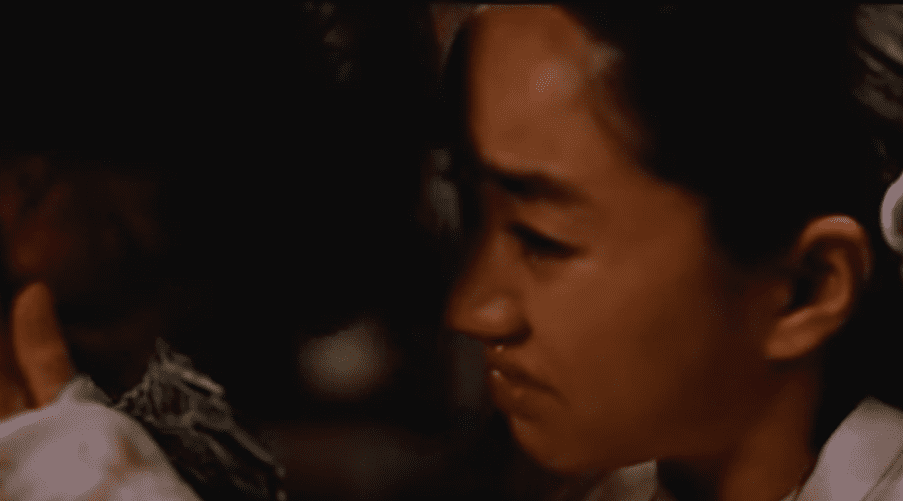The looming threat of the extraordinarily rapid urbanization and development of China at the expense of its people has been one of the favorite themes in Chinese independent films and documentaries. Director Wu Lang adds a poetic and esthetic element to the discourse with his film “Absence”, that premiered at Berlinale in the festival's Encounters section, following a previous short film with the same title, a similar plot and the same high-profile cast including Lee Kang-Sheng (best-known for his frequent collaborations with Taiwanese director Tsai Ming-Liang) and Li Meng.
Absence is screening at Five Flavours
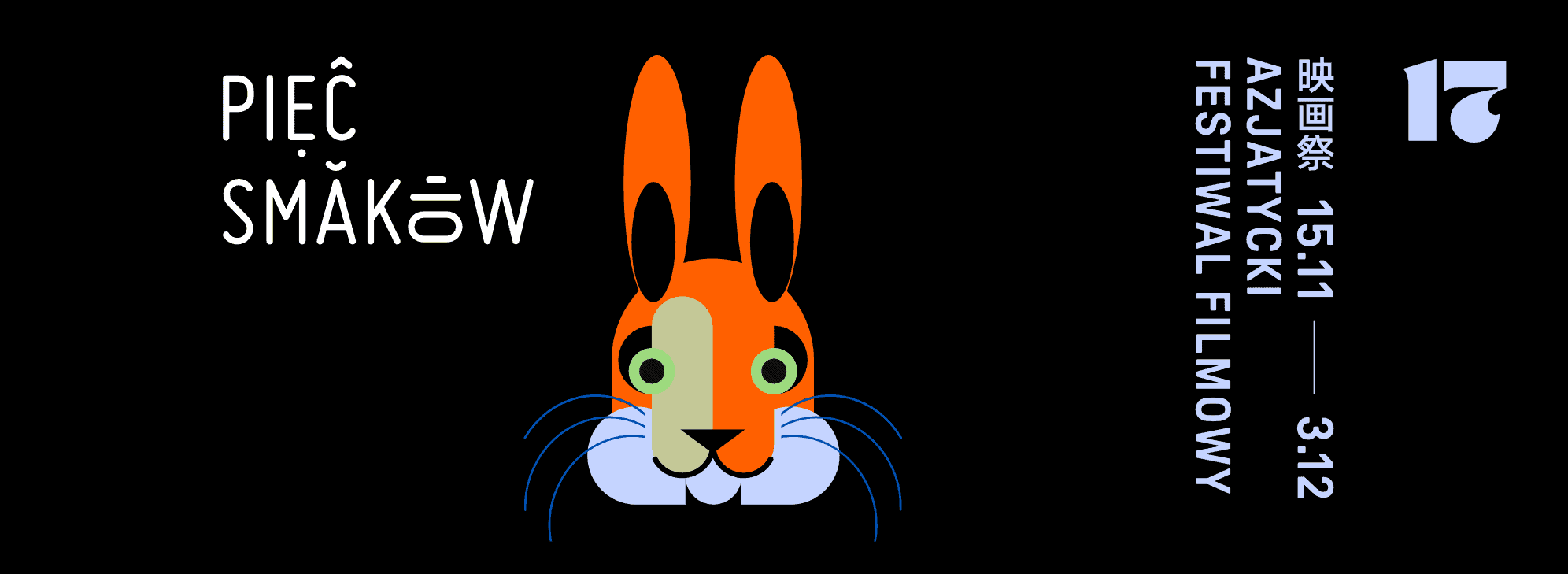
Han Jiangyu (Lee Kang-Sheng) is back in town after serving 10 years in prison, due to his connection with a local real estate crook and he timidly tries to reconnect with his past and figure out what happened during his absence. His first move towards his past life is a haircut and the reason is that the local beautiful hairdresser Su Hong (Li Meng) is his former love. They barely talk, but the emotions and tension are visibly strong. They are cautious and scared, especially Su who has built a fragile equilibrium as a single mum of a little girl, Yao, working hard to support her tiny family. Jiangyu is also approached by the son of his former boss, now deceased, who is the typical rich arrogant kid trying his luck with the land developers.
The two former lovers reconnect in a series of furtive, passionate and tender meetings in an abandoned boat stranded on the beach and when Su Hong learns that in order to buy a property in the new skyscraper on construction needs to be married to a local, she proposes to Jiangyu in a rather quirky after-dinner moment, while washing up. She is concerned about her daughter starting middle school and in need of a stable home, in a better place, but she is also nurturing deep feelings and affection for Jiangyu. Disaster strikes when the land developers of the housing projects disappear with the money of the numerous people who had paid a deposit to secure an apartment, and amongst them is Su Hong. The connection that Jiangyu has kept with the developers is not helping the situation either, on the contrary, it becomes a problem.
Check also this interview
The film is set on Hainan, an island province of China. Hainan is the nation's southernmost point, and it is home to director Wang who has lived there for about 10 years. Hainan is famous for its tropical climate, beach resorts and giant modern buildings in striking contrast with its lush nature. However, in some parts of “Absence”, the island looks frozen in time, especially around Su Hong. In the first scenes when the two former lovers meet again after Jiangyu's long absence, dialogue are sparse, the pace unhurried; Wang adopts a style reminiscent of the tradition of Chinese “Slow Cinema”, paying great attention to the visual and sonic elements of the film, emphasizing the atmosphere and the environment to create a sensory experience. Here, in these first 10 minutes, the two characters don't talk – you almost wouldn't guess they know each other – but the scene is dense like the tropical humid air. She is sweating, she drinks a sip of water and pauses behind a wall to recompose herself. 10 years of absence are in those eyes and that long pause, a storm is brewing outside the windows and inside her heart. This accuracy of details and non-spoken dialogues are the characteristics of “Absence” and are paired to the island landscape, often mirroring the emotional landscape of the protagonists' relationship.
However, the three parts of the film have rather different moods. The first act is tender and passionate, longing, and languid and enhanced by the creative and unconventional camerawork. The second third turns up the volume on the social commentary. The unfortunate experience of Su Hong and many others, losing their deposit and, most of all, their dream of a home, reflects a well documented history of scams and irresponsible traders in the real estate market, the hen-with-the-golden-eggs of modern China. In fact, the tone of this part of “Absence” is of despair and utter fatalism. The protagonists feel they cannot escape their fate, being poverty or being the unshakable ties with petty criminals. But then, here comes the third act, a quiet yet assertive twist of mood. Wang abandons completely the conventional narrative structures and prioritizes atmosphere and visual composition. Su Hong wanders among the remains of a half-built and abandoned massive building; the geometry of the decayed walls and naked structures reflected into the gridded ponds in the missing floor is strikingly beautiful.
She meets Jiangyu and they start in silence to prepare a room for themselves and little Yao. Like weeds, the family clings and adapts around the severe architecture of the tower block; after the catastrophe, nature reclaims its space and life starts to reappear, round, disobedient, and unpredictable. Tadpoles swim in dirty ponds, a duckling roams lost. This last part of the film is a triumph of aesthetic composure and command over the geometry of the space and yet it has a mad, surreal taste, not like proper magic realism but it is undeniably dreamlike and hypnotic in its post-apocalyptic set up. Wang's background in art, as a sculptor has possibly informed his confidence with the visual, and the ability to turn it into a rich metaphoric field.
Lee Kang-Sheng is very confident in the restrained acting mode that he has well practiced, working with Tsai Ming Liang, and Li Meng is terrific in conveying a blend of strength, innocence and purity. As said before, the visual of “Absence” is a mix of exquisite framing and composition, quirky camera angles and attention to minute details and this helps you forget the slight frustration for the progressive loss of narrative along the way. In conclusion, Wu Lang has channeled the atmospheres we have seen in Jia Zhangke, Tsai Min Liang and even Wong Kar-wai, giving them a very personal spin, in a debut that is confident and assertive in the independent cinema landscape.


